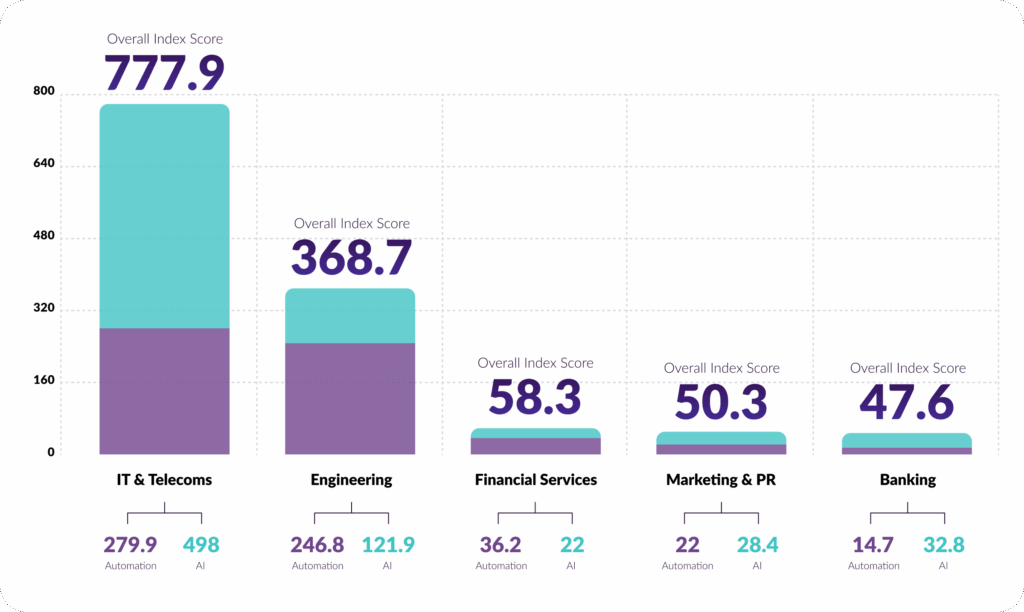That's according to data from business communications provider Esendex

While the financial services industry in the UK has a strong appetite for digital transformation, new data has exposed a looming digital skills crisis.
The findings, part of the ‘Automation & AI Readiness Report’ by business communications provider Esendex, analysed automation and AI job listings and training course availability using Reed data across 17 key industries to create a readiness index score out of 1,600.
Financial services scored just 58.3 out of a possible 1,600 on overall readiness for digital skills, reflecting an urgent need for investment and training to improve the industry’s digital progress.
AI roles accounted for just over half of digital skills vacancies in the sector at the time of analysis, with ‘python engineer/developer’ representing 71% of open AI roles, while automation-related positions lagged with only 73 skilled vacancies.
Despite stable vacancy levels in 2024-2025 (0% change YoY), overall vacancies have declined by 32.7% since 2022, which could suggest the sector has had a more targeted hiring approach for specialist roles.
However, training opportunities for digital skills also remain weak. Out of 13,800 courses available in the sector, just one in 12 focused on digital skills. Only 30% of these supported automation, representing just 2% of all sector training opportunities. This highlights a clear divide between growing workforce demand and the skills being developed.
While 82% of chief financial officers (CFOs) report increased investments in digital technology in 2024, the pace of implementation remains slow, with 49% of finance departments still operating with zero automation in 2025, leaving the financial sector unequipped for a vast digital transformation.
The sector is not alone, as digital transformation remains uneven across the UK economy. Crucially, out of the 17 industries analysed on the Automation & AI Readiness Index, ten sectors scored below 50 out of a possible 1,600, including construction, retail, and energy.
With most of these sectors employing large parts of the UK workforce, this could leave millions of jobs unprepared or unsupported for the next wave of digital transformation, and may result in innovation becoming concentrated in only a handful of sectors.
Richard Hanscott, chief executive officer of Esendex, said: “The financial services sector is showing strong digital ambition, but the data shows a growing skills gap between technological adoption and workforce readiness. As demand for automation and AI integration rises sharply, most industries simply aren’t moving quickly enough to future-proof their teams and implement the infrastructure necessary.
“The findings from our ‘Automation & AI Readiness Report’ make this even more evident, with a clear divide emerging. While a handful of sectors are making bold moves toward digital capability, the majority, particularly labour-intensive sectors, are at risk of being left behind. This isn’t down to a lack of ambition, but a severe lack of readiness, investment, and skills planning.
“The real threat isn’t just lost productivity, but of being outpaced by competitors who are already automating smarter, communicating faster, and scaling more efficiently. With solutions like automated SMS software helping to shape the way firms engage and serve customers, the opportunity is clear. But if UK businesses don’t bridge the skills gap now, they may find themselves stuck on legacy systems while their competitors race ahead.”
Image: Esendex


